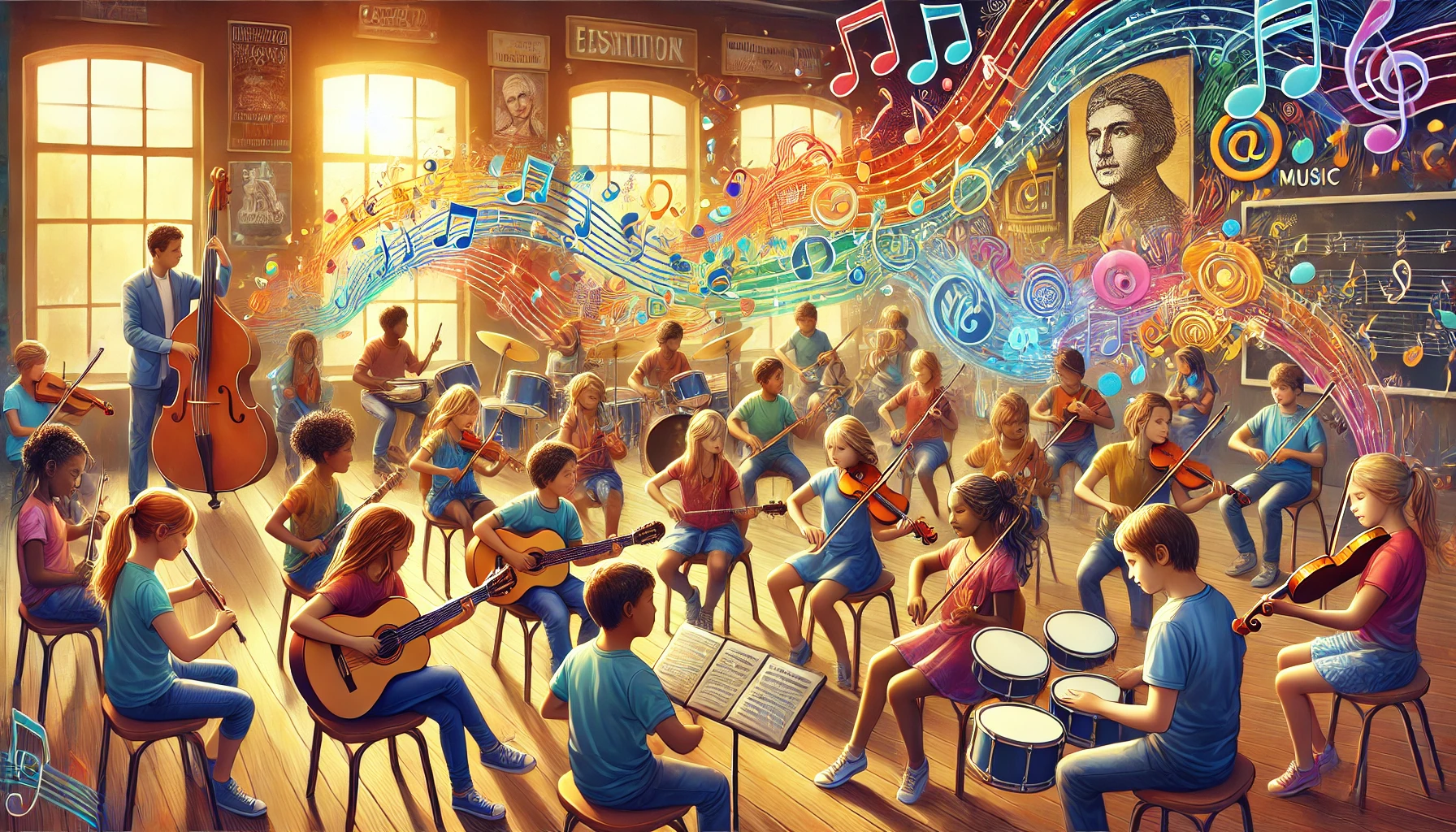
The Role of Music in Emotional Development: Why Music Classes Matter
Music is a universal language that resonates deeply with human emotions, making it a powerful tool for emotional development, especially for children. In today’s world, where emotional intelligence (EQ) is increasingly recognized as vital to personal and social success, music education plays a unique role. By engaging children in music classes, we offer them not just an opportunity to learn an instrument or sing, but also to explore, understand, and express their emotions in healthy and constructive ways. Here’s an in-depth look at how music impacts children’s emotional development and why music classes matter for fostering emotionally healthy kids.
1. Understanding Emotional Awareness through Music
For young children, understanding and identifying emotions can be challenging. Music provides a way for children to explore different emotions naturally and expressively. For instance:
- Learning to identify emotions: Different types of music elicit distinct emotional responses. A child can feel the joy in an upbeat tune, the calm in a lullaby, or the intensity in a dramatic symphony. By listening to and discussing these musical pieces, children begin to understand emotions and their complexities.
- Building self-awareness: Playing music or singing enables children to recognize their own emotional responses. They start to observe how music can shift their mood, calm their nerves, or uplift their spirits. This process fosters self-awareness, a crucial part of emotional intelligence.
2. Expression of Emotions in a Safe Space
Music provides a non-verbal outlet for children to express feelings they may not yet be able to articulate in words. In a music class, they can safely explore and release their emotions through:
- Instrumental expression: Playing an instrument allows children to channel their emotions through physical action. For instance, drumming might help release anger or excitement, while a piano or stringed instrument can provide a way to express softer, introspective feelings.
- Vocal expression: Singing lets children explore their vocal range while channeling emotions, especially through lyrics and melodies that resonate with how they’re feeling. This form of expression is therapeutic and can build confidence in processing emotions constructively.
3. Building Empathy through Collaborative Music Making
Music classes often involve group activities, which introduce children to shared musical experiences, promoting empathy and understanding:
- Listening and responding: As children play instruments together or sing in harmony, they learn to listen, respond, and adjust their performance to create a balanced sound. This active listening and coordination encourages empathy and cooperation, essential qualities for emotional development.
- Understanding different perspectives: When children participate in group music-making, they experience the value of individual contributions within a collective goal. It teaches them to appreciate others’ efforts and understand the feelings of their peers, which strengthens their ability to empathize.
4. Developing Emotional Regulation Skills through Structured Learning
Learning music involves discipline and persistence, qualities that are directly linked to emotional regulation. Through structured learning in a music class:
- Managing frustration and overcoming challenges: Children often face initial challenges when learning to play an instrument or mastering a new piece. They learn to manage their frustrations, persevere, and eventually overcome these hurdles. This helps them develop resilience and the ability to manage emotional stress.
- Patience and delayed gratification: Music classes teach kids to wait, practice, and improve gradually. The process of rehearsing and refining their performance shows them that rewards often come with sustained effort and patience, promoting a balanced emotional approach to setbacks and successes.
5. Enhancing Self-Confidence and Reducing Anxiety
Music education is linked to improved self-confidence and reduced anxiety, both critical to emotional well-being. Regular practice, performances, and recognition build a sense of accomplishment:
- Building self-esteem through achievement: As children learn to play a new instrument or perform in front of others, their sense of self-worth and accomplishment grows. Achieving milestones in music fosters a strong, positive self-image.
- Reducing stress and anxiety through music’s calming effects: Music classes often include mindful activities, like listening exercises or slow, rhythmic playing, which have calming effects on the mind and body. This experience can help children develop coping strategies for stress and anxiety.
6. Using Music as a Tool for Emotional Healing and Resilience
Music is therapeutic, and for children, it can be a gentle way to work through difficult emotions or experiences. Music therapists often use musical activities to help children process feelings of grief, anger, or insecurity. In everyday music classes:
- Channeling emotions healthily: For children experiencing sadness or anger, music provides an outlet to channel these feelings without feeling overwhelmed or misunderstood.
- Strengthening resilience through creative expression: As children engage creatively, they become better equipped to face challenges and setbacks, building emotional resilience. Creating and sharing music encourages them to view difficult emotions as something they can express, not just something to endure.
7. The Lasting Impact of Music on Emotional Growth
Studies show that exposure to music can have long-term benefits for emotional health. Adults who studied music as children often display higher levels of emotional intelligence, empathy, and resilience. By nurturing a love for music early on, we help children build a foundation of emotional skills that they carry into adulthood.
Conclusion: Why Music Classes Matter
Music classes are more than just lessons on instruments or melodies—they are an opportunity for children to learn about themselves and the world around them in a deeply personal and emotional way. Through music, children can experience joy, manage frustration, express themselves, and empathize with others. These experiences foster emotional intelligence, a quality that will serve them in every facet of life. Music education, therefore, isn’t merely an extracurricular activity but a pathway to holistic, emotionally intelligent growth. So, by enrolling children in music classes, we’re giving them a gift far more valuable than musical skills alone; we’re nurturing resilient, empathetic, and emotionally balanced individuals.


